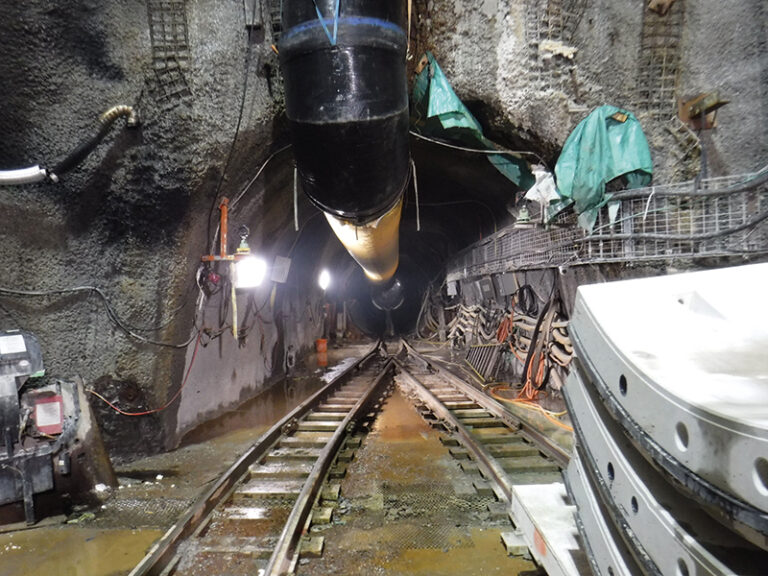Is project coordination the biggest blind spot on Canadian job sites?
With demand for new housing far outpacing supply, Canada must build an additional 3.87 million homes by 2031 to restore affordability, according to the CMHC. At the same time, the OECD Global Forum on Productivity reports that the construction sector has seen a 10 per cent productivity decline since 2019. Industry experts agree: scalable, site-specific training is no longer optional.
Humber Polytechnic, in partnership with CourseCompare and in collaboration with Pomerleau has launched the Project Coordinator for Construction (PCC) micro-credential, designed to address a critical skills gap in Canada’s construction sector and support the country’s urgent housing and infrastructure goals.
The 16-hour, hybrid, micro-credential prepares learners for one of the most essential yet undertrained roles on the job site: the project coordinator. Designed around real-world demands, the course combines technical instruction with simulations led by experienced industry professionals. It is supported by CourseCompare’s education platform, which integrates labour market mapping, high-intent audience targeting, and a data-driven recruitment strategy to connect organizations and learners with in-demand training opportunities.
“Canada faces a once-in-a-generation building challenge,” says Frank Cappadocia, Dean, Continuous Professional Learning at Humber Polytechnic. “To restore housing affordability and deliver the infrastructure Canadians need, we must train the right people for the right jobs. This program provides a fast, practical, and scalable solution that’s been built with the sector, for the sector.”
“There’s a growing recognition that project coordinators are essential to scaling Canada’s construction capacity,” says Robert Furtado, CEO of CourseCompare. “Our job is to connect that industry need with motivated learners—and to support employers in building stronger, more efficient job sites through targeted education and workforce engagement. We’re helping shift project coordination from an informal skillset to a professionalized standard.”
Training built for construction’s front lines
Despite being central to project timelines, communication, and coordination, project coordinators often receive little formal training. The PCC micro-credential is designed to change that. Participants gain hands-on instruction in scheduling trades, managing RFIs, interpreting construction drawings, and navigating project lifecycles—skills that directly reduce delays, minimize cost overruns, and improve job site flow.
Developed with input from leading builders and industry groups, the program is delivered in a flexible, hybrid format to minimize disruption and maximize site impact. It’s available on demand to employers looking to upskill new hires or help employees transition into coordination roles.
Key benefits for employers include:
Upskill internal talent or new hires quickly
Improve job site communication, coordination, and accountability
Reduce costly delays and project inefficiencies
Align workforce development with industry-recognized standards
Graduates are equipped not only with technical skills but also with essential soft skills—communication, conflict resolution, and cross-functional collaboration—that drive high-performing teams.
“Ideal training includes real-world examples,” said Greg Cicovacki, OCT, and Online Course Developer at Humber Polytechnic. “When instruction reflects what actually happens on-site, it’s easier for learners to engage, apply what they’ve learned, and step into the role with confidence.”
To raise awareness and equip the sector with insights, CourseCompare produced a strategic insights report based on interviews with construction leaders from Pomerleau, Orion Construction, and industry groups including Building Transformations, and BuildForce Canada, highlighting the core competencies for project coordinators in Canada.
Canada needs a new training standard for project coordinators
In a construction industry navigating intense demands, high-stakes expectations, and tighter timelines, one role is increasingly at the centre of it all: project coordinators.
“The project coordinator role is foundational to ensuring projects remain on time,” says Bill Ferreira, Executive Director of BuildForce Canada, which supports the construction industry with labour market insights and workforce tools. “It’s an invaluable role that is often overlooked when project delivery is discussed. But without seasoned and committed project coordinators, projects can quickly fall behind. It’s often the difference between success and failure.”
“The project coordinator has become one of the most critical roles on a construction team—not because they hold decision-making authority, but because they’re the connective tissue that binds a project together,” says Cameron Archer, Director of Sales and Marketing at Orion Construction in B.C.
So why are they often overlooked in strategic workforce planning and formal training?
“The expectations placed on coordinators have evolved faster than the training available to them,” Archer explains.
Project coordinators are expected to manage drawings, specs, schedules, and team communication from day one. But too many start without the fundamental skills to do so. The consequences? Flow breakdowns, setbacks, and rising costs, especially on fast-moving builds.
This is a role with “a steep learning curve,” continues Archer. While project coordinators learn from field exposure and mentorship, he says more formal training is key. “What’s missing isn’t just technical upskilling, but contextual awareness. Coordinators need to know why we do things a certain way, when a detail becomes critical, or how to read between the lines of a design conflict.”
It’s all about building capacity. The right training can address the disconnects between management and on-site professionals, to propel significant productivity gains.
Does the industry need a new standard for project coordinators? “Without question,” says Archer.
“A well-trained coordinator doesn’t just push paperwork, they act as the project’s operational conscience. They see risk before it materializes, and close loops others overlook. Delays and rework are rarely caused by isolated mistakes; they’re caused by breakdowns in coordination and communication. The project coordinator sits at the heart of those workflows. When properly trained, they become the gatekeepers of quality and schedule integrity.”
This is a foundational role in Canadian construction, but until now dedicated training for project coordinators has been limited. Humber is offering a practical, job-ready training solution–one that’s built with and for the industry, to boost project success.
“Many of today’s best project managers and site superintendents started as coordinators,” says Archer. “If we want to build a strong leadership pipeline in construction, we need to invest early. Standardizing this role is a powerful place to start.”
Industry-specific training
Off-the-shelf or one-size-fits-all training doesn’t cut it, according to Greg Stallaert, a Construction Superintendent at Pomerleau. Ideal training includes real-world examples.
When training aligns with everyday construction challenges, Stallaert says, it’s easier for learners to engage, retain knowledge, apply it immediately, and ultimately transition from worker to on-the-ground leader.
The right leadership training programs can also better equip employees to work together on projects and job sites efficiently. “You need to be a collaborator,” says Stallaert, identifying that as the most important leadership skill in this industry.
Another benefit of industry-specific training is a greater understanding of the advantages of new technology, says industry veteran Hammad Chaudhry. Chaudhry is Treasurer at Building Transformations, a national organization aiming to drive the Canadian building industry to be global leaders in innovation and technology. He’s also Vice President of Market Development and Partnerships at Timescapes, a firm that connects construction teams with the visual data they need to build better.
Chaudry says that sometimes, the combination of traditional trade skills with digital technology skills is a missing piece in upskilling for construction professionals.
Yet even as technology rises in importance, it’s just as vital to invest in the people behind the tech. Automation and digital tools are helping some firms to become more productive, especially the larger ones. But poor team coordination can create bottlenecks and lead to underperformance.
“If they [project managers and superintendents] collaborate on job planning, they can also plan the appropriate technology to assist with the work,” says Chaudhry.
What to look for in construction professional training
Construction companies are smart to partner with educational institutions “that provide tailored courses and certifications to meet industry needs,” says Ferreira.
“Strengthening connections with vocational schools, colleges, and universities ensures that educational programs align with industry requirements,” adds Archer. “These partnerships are crucial for providing hands-on experiences and guaranteeing that emerging talents are equipped with relevant, job-ready skills.”
Humber Polytechnic’s PCC micro-credential, for example, was a joint effort between the education design experts at the college and their consulting industry experts who ensured the accuracy and relevance of the program every step of the way.
The Humber course also aligns to another growing best practice in construction training—shorter, stackable modules, which are practical, flexible, and easy to fit around demanding work schedules.
“We have to be able to throw in these sorts of micro-courses along with bigger initiatives,” Chaudhry says.
With files from CourseCompare strategic insights report.
[This article appeared in the September/October 2025 issue of ReNew Canada.]
Featured image: (Getty Images)












